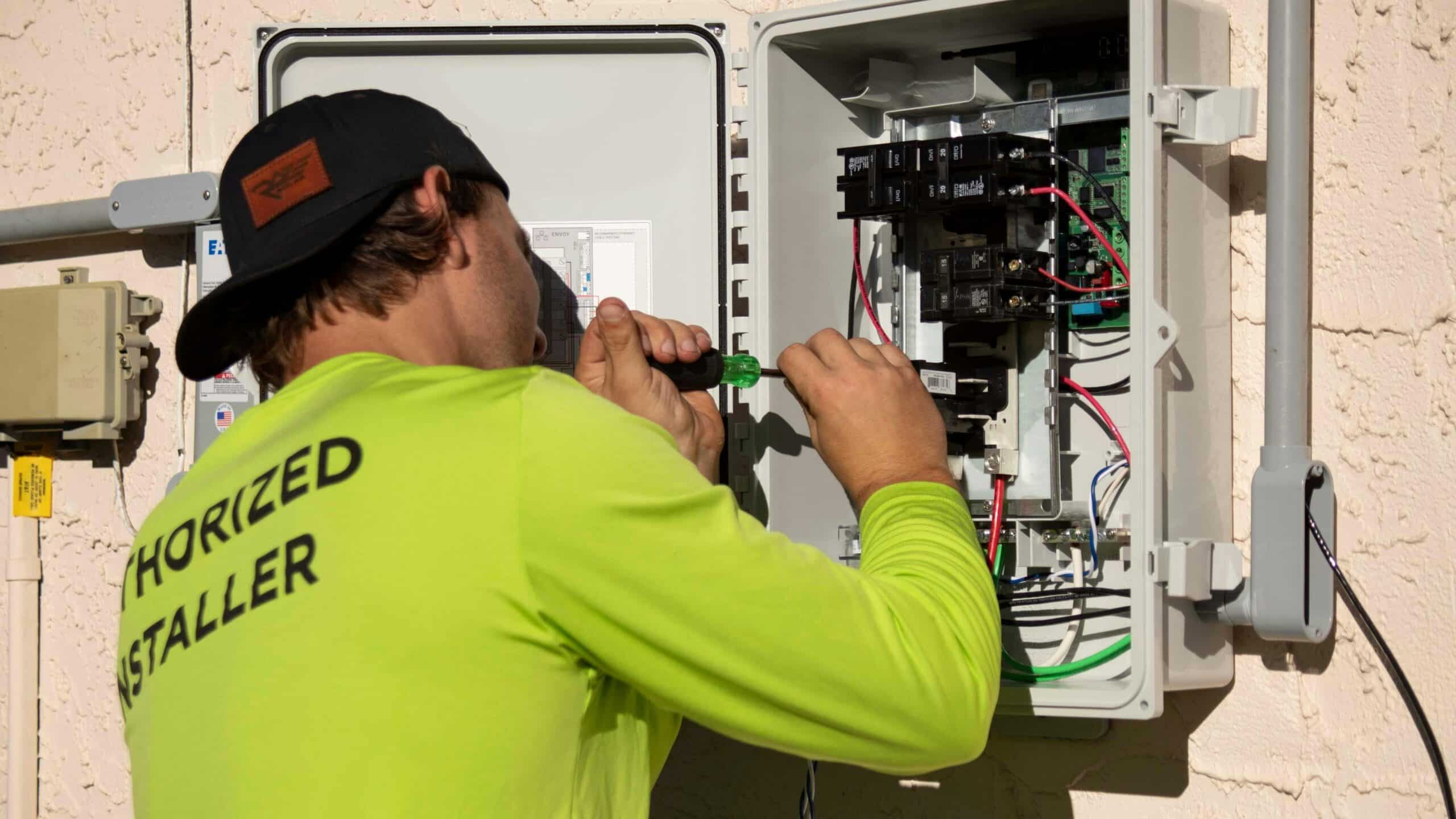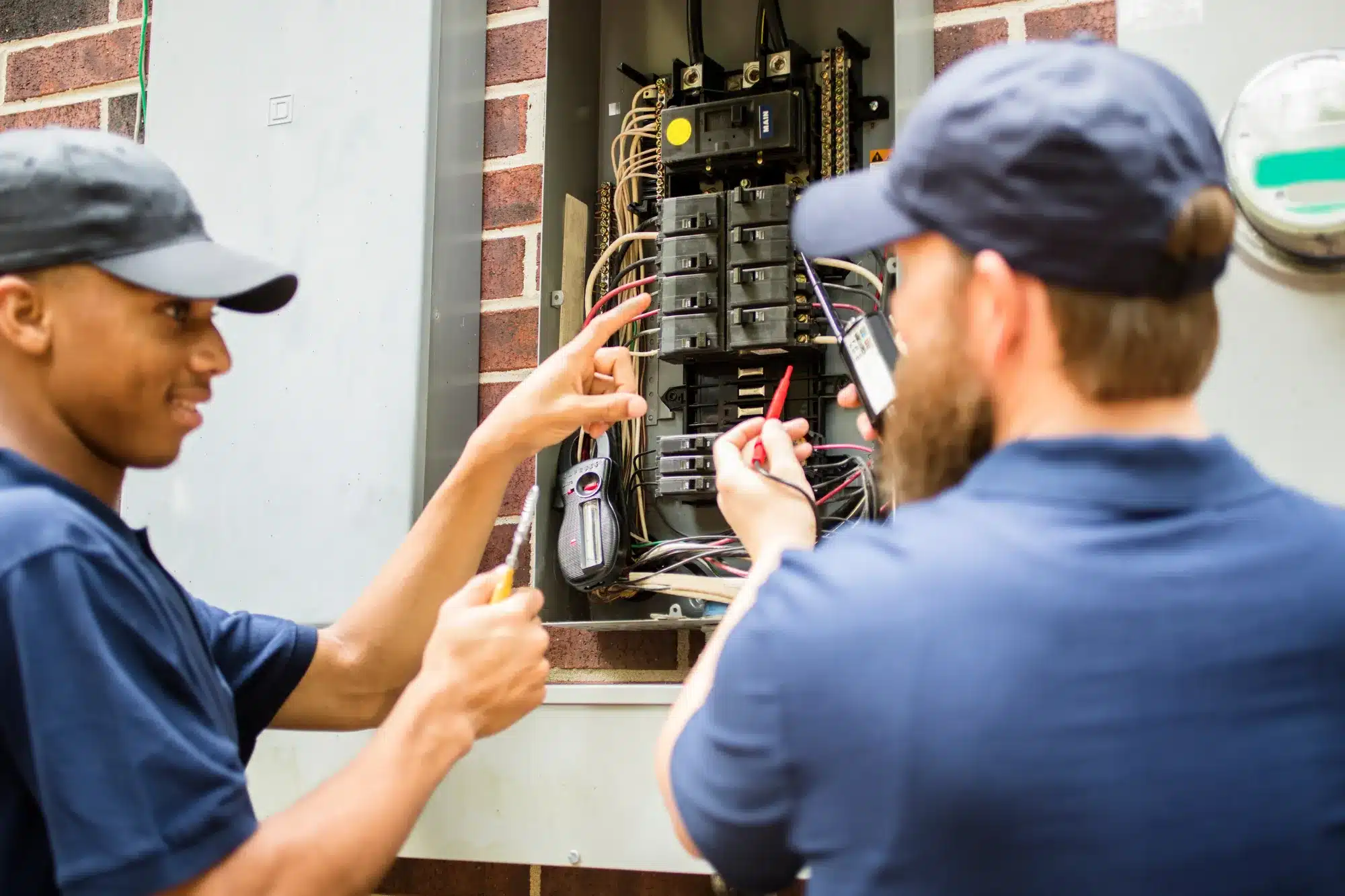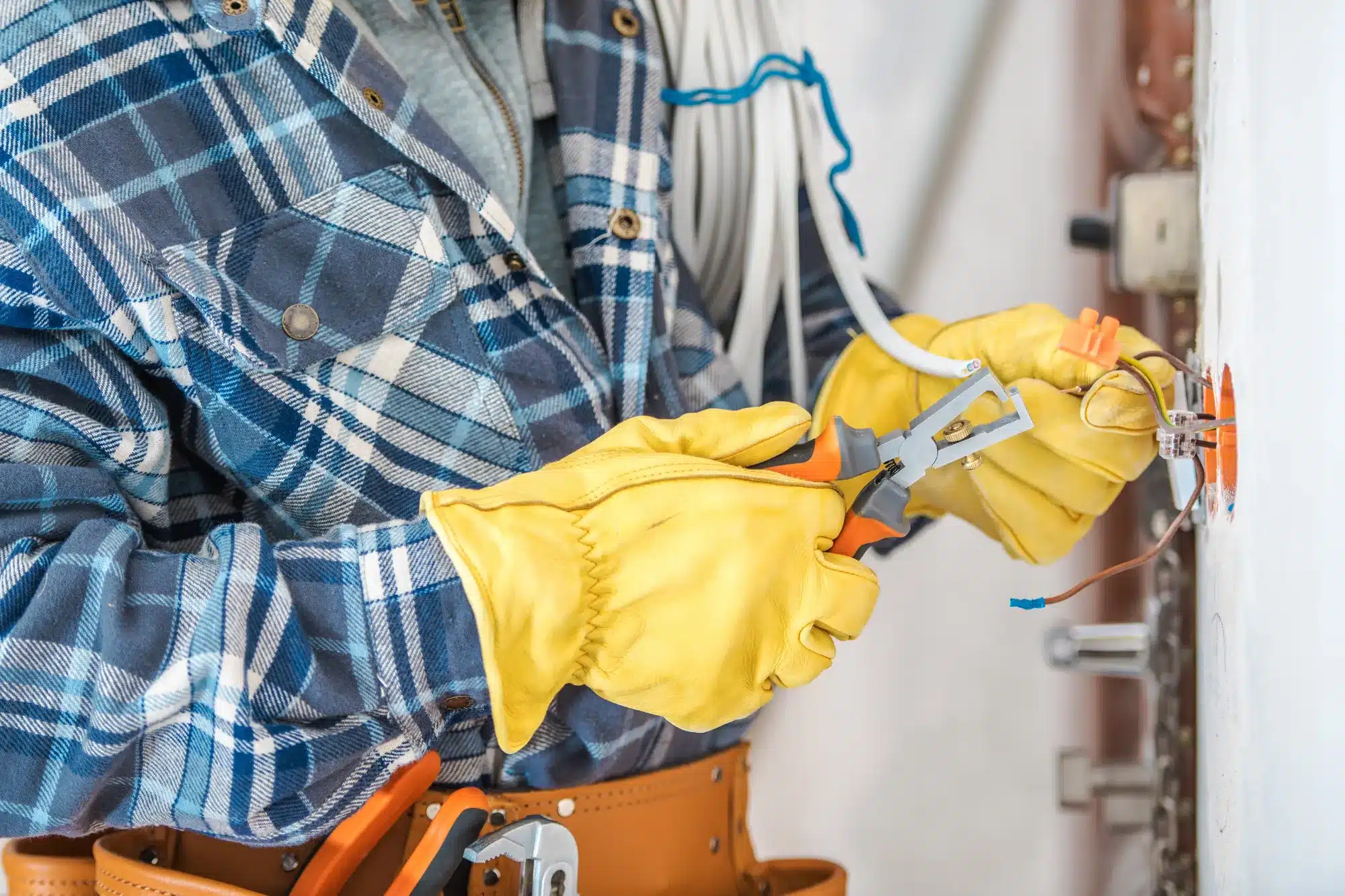
Identifying Electrical Issues: 7 Warning Signs You Need Repair Services Immediately
Electrical problems in residential and commercial spaces not only disrupt day-to-day operations but also pose significant safety hazards. Home and business owners may notice warning signs such as flickering lights, unusual smells, tripped circuit breakers, and buzzing sounds from electrical panels, all of which might require prompt electrical repairs to prevent further damage. Griggs Electric, with over 100 years of trusted service in Columbus and its surrounding areas, understands the importance of diagnosing electrical faults before they lead to catastrophic failures. This article outlines common warning signs that indicate immediate repair services are needed, explains the causes behind these issues, and offers practical advice for addressing them. By reading on, you will learn the critical indicators that your electrical system requires attention and understand the steps necessary to mitigate risks.
What Are the Most Common Signs That Indicate You Need Electrical Repair Services?
Electrical issues are often preceded by observable warning signs that signal potential hazards. Home and business owners should consistently monitor for signs such as flickering lights, burning smells, tripping circuit breakers, malfunctioning outlets, warm or sparking outlets, buzzing panel noises, and electrical shocks or tingling sensations.
How Do Flickering Lights Signal Electrical Problems?
Flickering lights are an easy-to-observe indicator of problems like loose wiring connections, overloaded circuits, or voltage fluctuations. A rapid change in brightness may suggest inefficiencies that can lead to fire risks or equipment damage. Even minor fluctuations may shorten the lifespan of light fixtures. If flickering is noticed regularly, it is important to inspect electrical panels and wiring connections, ideally with the help of a licensed electrician, to rule out risks such as shocks or fires from faulty wiring.
What Does a Burning Smell From Outlets or Wiring Mean?
A burning smell from outlets or wiring is an urgent warning sign. This odor, similar to burning plastic or rubber, typically signals that components such as wiring or insulation are overheating due to overloads or deterioration. Such a smell indicates that the electrical system is under extreme stress, possibly leading to a fire hazard. It is imperative to shut off power immediately in the affected area and call a professional electrician to inspect and repair the issue.
Why Do Circuit Breakers Frequently Trip and What Does It Indicate?
Frequent tripping of circuit breakers often points to an overloaded or short-circuited system. Circuit breakers are designed to cut power when current exceeds safe limits. Repeated tripping may occur because too many appliances are on a single circuit or because damaged wiring leaks current unintentionally. It may also indicate that the electrical panel is outdated. In both residential and commercial settings, regular load testing and careful circuit design are essential to prevent further trips and ensure safety.
How Can Non-Working or Faulty Outlets Indicate Electrical Faults?
Faulty outlets, which stop working or behave erratically, may signal deeper electrical problems. They can result from loose wiring, wear from prolonged use, or damage from power surges. Outlets in high-traffic areas are especially vulnerable, and issues like exposed wiring or inadequate grounding can lead to arcing and fire risks. A professional electrician should test and, if necessary, replace any outlets that show signs of damage such as warmth or burn marks to secure safe operation.
What Are the Risks of Warm or Sparking Outlets?
Warm or sparking outlets indicate electrical stress. When an outlet feels unusually warm or emits sparks, it suggests that the connection is unstable, possibly due to corrosion, loose wires, or deteriorated terminal components. This condition can further damage insulation, increasing the risk of short circuits and fires. Homeowners should disconnect devices immediately and contact an electrician to assess whether the issue can be remedied by tightening connections or if a complete replacement of the outlet is necessary.
How Do Buzzing Sounds From Electrical Panels Warn of Issues?
A buzzing or humming sound from an electrical panel is a sign of potential faults such as arcing, loose connections, or failing components. This noise can indicate overloaded circuits or transformer issues. Persistent buzzing may precede severe faults like electrical fires or widespread circuit damage. Any abnormal noise should prompt a professional inspection to determine if repairs or replacements are necessary.
What Does Experiencing Electrical Shocks or Tingling Sensations Mean?
Experiencing shocks or tingling when touching appliances or outlets is a red flag for issues like grounding problems or exposed wiring. These signs point to an imbalance in the electrical current, where stray voltage escapes from insulated surfaces. Even small shocks can indicate a serious hazard. It is important to consult a licensed electrician immediately to diagnose and repair such issues, ensuring proper grounding and updated wiring.
What Causes These Electrical Warning Signs and How Can They Be Diagnosed?

Understanding the causes behind electrical warning signs is essential for effective diagnosis and repair. Common issues include faulty wiring, overloaded circuits, damaged outlets, outdated panels, and malfunctioning appliances. Each factor presents specific failure modes that professionals can detect using diagnostic tools.
How Does Faulty Wiring Lead to Electrical Issues?
Faulty wiring is a common cause of electrical problems. It may involve loose connections, frayed insulation, or outdated wiring methods that do not meet current standards. Such wiring issues can lead to insufficient power flow, causing flickering lights and circuit breaker trips, and may even pose fire hazards. Professional electricians use tools such as multimeters and thermal imaging to detect hot spots and ensure continuity in wiring circuits.
What Role Do Overloaded Circuits Play in Electrical Failures?
Overloaded circuits occur when too many devices draw power from a single circuit, putting stress on the wiring and causing breaker trips. This overload can degrade electrical performance and may damage wiring over time, leading to hazardous conditions. Measuring current flow against rated capacity helps professionals identify these issues, recommending load redistribution or circuit upgrades as needed.
How Can Damaged Outlets and Switches Trigger Warning Signs?
Damaged outlets and switches are signs of deeper electrical issues. Over time, heavy usage can degrade components, leading to burn marks, loosened terminals, or water damage. These problems can result in erratic power delivery, sparking, and shock hazards. A licensed electrician can inspect outlets using visual assessments and voltage tests to decide if replacement is necessary.
When Is an Electrical Panel Upgrade Necessary?
An upgrade may be required when an electrical panel can no longer safely handle modern power demands. Signs such as frequent breaker trips, unusual noises, or excessive heat indicate that the existing panel may be outdated. An upgraded panel improves power distribution, increases circuit capacity, and enhances overall safety by incorporating modern protective features.
How Do Faulty Appliances Contribute to Electrical Problems?
Faulty appliances can cause irregular voltage spikes or drops that affect the entire electrical system. When an appliance malfunctions, it may draw abnormal current, leading to flickering lights or tripped circuits. Regular maintenance of appliances and isolating faulty ones can prevent these systemic issues, while professional inspections can identify if broader wiring problems exist.
What Immediate Actions Should You Take When You Notice Electrical Warning Signs?
Immediate action is crucial when electrical warning signs appear. To minimize risks, homeowners should disconnect affected devices, stop using malfunctioning circuits, and call a licensed electrician. These steps help reduce the risk of injury, prevent further damage, and avoid costly repairs caused by fires or shocks.
When Should You Call a Licensed Electrician for Repairs?
A licensed electrician should be contacted at the first sign of unusual behavior, be it flickering lights, burning smells, repeated circuit breaker trips, or electrical shocks. Professional diagnosis ensures that underlying issues are addressed properly. DIY fixes are not recommended for high-risk problems as they may fail to resolve hidden faults.
How Can You Safely Manage Electrical Issues Before Repair?
Before a professional repair takes place, it is wise to unplug devices from the affected area and switch off the relevant circuit breaker if possible. Avoid touching outlets, switches, or panels until an electrician arrives. Maintaining clear access to the electrical repairs panel and using temporary measures such as surge protectors can help manage the situation safely.
What Are the Dangers of Ignoring Electrical Warning Signs?
Ignoring warning signs can lead to severe hazards, including electrical fires, significant property damage, and injury. Overlooking symptoms like flickering lights or tripped breakers may worsen underlying issues, causing unpredictable power surges that harm electronic devices. Proactive repairs and regular inspections are essential to prevent these dangerous outcomes.
How Often Should You Schedule Electrical Inspections to Prevent Issues?
Regular electrical inspections are critical. For residential properties, a comprehensive electrical system inspection is recommended every 3 to 5 years, while older or recently renovated homes may require more frequent evaluations. Commercial properties, due to their higher electrical loads, should opt for annual inspections to ensure all components meet current safety standards.
How Do Electrical Repair Services Address These Warning Signs?

Professional electrical repair services provide comprehensive solutions to diagnose and fix issues identified by warning signs. Experts use advanced diagnostic tools to locate faults ranging from faulty wiring to overloaded circuits and malfunctioning appliances. Griggs Electric and similar providers help restore safety and system efficiency.
What Does Electrical Troubleshooting Involve?
Electrical troubleshooting is a systematic process where technicians first conduct a visual inspection, then measure voltage and current levels with specialized devices. This process helps identify issues such as loose connections, wear, and overload conditions. In some cases, thermal imaging is used to detect hotspots. The goal is to determine whether a simple repair or a larger system upgrade is needed.
How Are Faulty Wiring and Outlets Repaired or Replaced?
Once the root cause is identified, repair services may replace worn wiring, tighten loose connections, or reinstall damaged outlets and switches. Repairs are made using materials that comply with modern safety standards, ensuring that risks such as fires or shocks are minimized. In cases of widespread issues, rewiring sections of the property may be necessary.
What Are the Benefits of Electrical Panel Upgrades?
Upgrading an electrical panel is one of the most effective ways to meet modern power demands. A new panel manages additional circuits more efficiently and incorporates advanced safety features that protect against overloads and short circuits. This improvement also reduces breaker trips and enhances overall energy efficiency, while adding value to the property.
How Do Electricians Ensure Compliance With Electrical Codes?
Licensed electricians follow strict national and local codes during repairs and upgrades. These guidelines ensure proper wiring methods, load capacities, and the use of protective devices. Inspections before and after repairs verify that the work meets all required safety standards. Ongoing training and certification help maintain these high standards.
What Are the Signs of Outdated Electrical Systems That Require Upgrades?
Outdated electrical systems may struggle to support modern appliances and increased power demands. Signs include old wiring, outdated panels, and inefficient performance. These issues can lead to frequent tripping breakers, dimming lights, or overheating components, all of which compromise safety.
How Can You Identify Old or Unsafe Wiring?
Unsafe wiring is often evident through visual clues like discolored insulation and exposed wires, or by noticing recurring issues such as frequent outages. A licensed electrician can assess the wiring’s gauge, insulation integrity, and overall compatibility with modern electrical loads to determine if replacement is needed.
When Is It Time to Replace Your Electrical Panel?
Electrical panels that exhibit frequent trips, excessive heat, or outdated technology are candidates for replacement. Panels installed decades ago may no longer support contemporary electrical loads. An upgrade improves power distribution and reduces overload risks, ensuring that sensitive devices are protected from voltage fluctuations.
What Are the Benefits of Upgrading to Modern Electrical Systems?
Modern electrical systems offer enhanced safety, improved energy efficiency, and greater capacity to handle current technological demands. Features such as arc-fault and ground-fault circuit interrupters reduce fire and shock risks. Upgraded wiring and panels also distribute power evenly, reduce wear on individual circuits, and help maintain property value by meeting evolving safety standards.
What Frequently Asked Questions Do Homeowners Have About Electrical Warning Signs?

Homeowners commonly ask questions about interpreting electrical warning signs. Frequently discussed topics include diagnosing failing panels, the causes of flickering lights under appliance loads, breaker behavior during storms, and early detection of hidden wiring problems.
How Can I Tell if My Electrical Panel Is Failing?
Signs of a failing panel include inconsistent power delivery, frequent breaker trips, unusual buzzing noises, and visible damage like corrosion or burn marks. Regular inspections can identify early degradation. If multiple circuits are affected at once, it likely indicates that the panel is nearing the end of its service life and may need replacement.
What Causes Flickering Lights Only When Using Certain Appliances?
Flickering lights that occur only with specific appliances often indicate a localized overload or voltage drop. High-power devices can draw more current than a circuit can handle, causing temporary dimming or flickering. Redistributing the electrical load or upgrading the wiring can usually resolve this issue.
Why Do Breakers Trip More Often During Storms?
Storms can cause power surges or lightning strikes, leading to sudden increases in electrical demand and voltage fluctuations. These surges may overwhelm circuits, causing breakers to trip. Moisture can also affect wiring stability during storms. Installing surge protectors and having the system inspected can help reduce these issues.
How Can I Detect Hidden Electrical Problems Early?
Early detection involves regular monitoring and inspections. Signs such as slight buzzing, infrequent outages, or minor changes in appliance performance can indicate underlying issues. Using voltage testers or energy monitors, along with periodic professional inspections, helps catch problems before they escalate.
How Can You Prevent Electrical Issues and Maintain a Safe Electrical System?
Preventing electrical issues relies on ongoing maintenance, adherence to safety practices, and timely modernizations. Routine inspections by licensed electricians combined with careful appliance usage can help avoid hazardous situations. Homeowners are encouraged to adopt best practices that ensure long-term safety and efficiency.
What Are the Best Practices for Electrical System Inspections?
Regular inspections should cover all major components including wiring, outlets, switches, and the main panel. Inspections are recommended every three to five years for homes, and annually for commercial spaces. Testing for proper grounding, load distribution, and functionality of safety devices is essential to prevent costly repairs or failures.
How Does Regular Maintenance Reduce Repair Needs?
Routine maintenance, such as cleaning panels, tightening connections, updating fixtures, and replacing worn outlets, helps detect minor issues before they become major problems. This proactive approach minimizes outages and malfunctions, extends appliance lifespan, and reduces energy waste.
What Safety Tips Should You Follow to Avoid Electrical Hazards?
Key safety practices include never overloading outlets, using the proper surge protectors, and avoiding DIY repairs for high-risk components. It is important to rely on licensed professionals and to stay updated on current electrical codes. Prompt replacement of corroded or frayed wiring further reduces hazards.
How Can Smart Home Technology Help Monitor Electrical Health?
Smart home systems, including smart circuit breakers and energy monitors, provide real-time data on voltage fluctuations and current usage. These devices can alert homeowners to irregularities before they escalate into serious problems. When integrated with regular professional inspections, smart technology creates a comprehensive approach to maintaining a safe electrical system.
Table: Comparison of Electrical Warning Signs, Causes, and Solutions
Before diving further into prevention and maintenance, the table below summarizes common electrical warning signs along with their typical causes and recommended solutions.
| Warning Sign | Common Causes | Recommended Action | Safety Impact |
|---|---|---|---|
| Flickering Lights | Loose wiring, voltage fluctuations | Check wiring, redistribute load, inspect panel | Reduced appliance stress |
| Burning Smell | Overloaded circuits, deteriorated wiring | Shut off power, inspect wiring and outlets | Immediate hazard risk |
| Frequent Breaker Trips | Overloaded circuits, short circuits | Redistribute load, inspect for shorts | Prevent fire risk |
| Non-working Outlets | Faulty wiring, worn outlets | Replace outlets, test circuit integrity | Device damage |
| Warm or Sparking Outlets | Loose connections, degraded insulation | Contact electrician immediately | Fire, shock hazard |
| Buzzing Electrical Panels | Faulty components, overloaded circuits | Professional diagnostic and repair | Panel failure risk |
| Electrical Shocks/Tingling | Grounding issues, exposed wiring | Disconnect, call a licensed electrician | Shock/injury risk |
The table above illustrates the relationship between warning signs and their potential causes. Addressing these indicators early can help property owners avoid hazardous situations and maintain continuous electrical safety.
Frequently Asked Questions
Q: What immediate steps should I take if I notice a burning smell from an outlet? A: Immediately disconnect all devices, turn off the power at the circuit breaker, and avoid using the outlet. Contact a licensed electrician promptly, as a burning smell signals overheating or faulty wiring that could lead to a fire.
Q: How often should electrical inspections be scheduled in older homes? A: Older homes should ideally have an electrical inspection every three years, though annual inspections may be necessary if issues arise frequently. Regular inspections can reveal outdated wiring, deteriorating outlets, and the need for panel upgrades.
Q: Can smart home technology replace traditional electrical inspections? A: While smart monitoring devices can offer real-time alerts and track energy usage, they do not replace thorough, hands-on inspections by licensed electricians. They are supplementary tools that enhance overall safety when used alongside regular assessments.
Q: Why do some outlets provide electrical shocks even when devices are unplugged? A: Shocks from outlets, even when unplugged, generally indicate grounding issues or exposed wiring, often due to degraded insulation or improper installation. Immediate diagnosis and repair by a professional are essential to prevent hazards.
Q: What are the benefits of upgrading an electrical panel in older buildings? A: Upgrading your electrical panel enhances safety by increasing capacity for modern loads, reducing breaker trips, and adding advanced safety features. A modern panel also improves efficiency, supports new technologies, and meets current electrical codes. For more information, check our panel upgrades.
Final Thoughts
Electrical systems are essential for the safety and efficiency of any property. Recognizing early warning signs such as flickering lights, burning smells, tripped breakers, and faulty outlets is critical. Prompt consultation with a licensed electrician can mitigate hazards, ensuring safe and uninterrupted operation. Regular inspections, preventive maintenance, and timely upgrades not only prolong the lifespan of your electrical infrastructure but also protect your overall investment. Taking a proactive approach and leveraging professional repair services is key to maintaining a secure electrical network.





